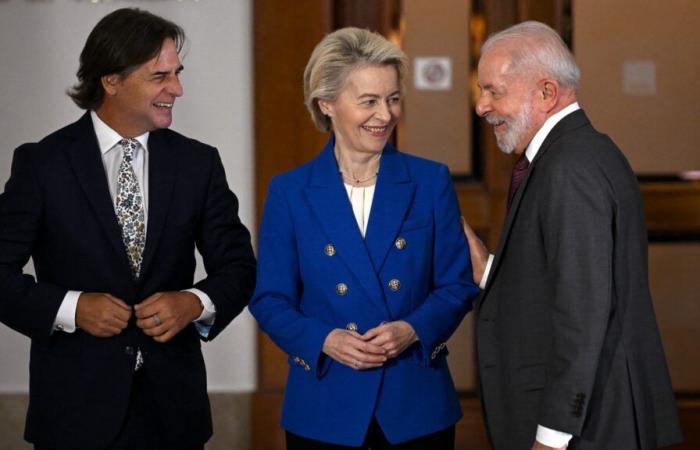The President of the European Commission has just announced the finalization of negotiations for a free trade agreement between the European Union and Mercosur.
The announcement was seen as a “betrayal” and a “provocation”. Following the announcement of the conclusion of the free trade agreement with Mercosur countries this Friday, the majority French unions in the agricultural world did not wait to react.
The majority French agricultural union alliance FNSEA-Young Farmers (JA) estimated in a press release that the President of the European Commission Ursula von der Leyen had “betrayed European farmers”.
A “meat for cars” deal
“A victory for Europe” according to Ursula von der Leyen but an outcry for the agricultural world which accuses her of not taking into account the strong opposition from France and European farmers on the subject. The latter would be more concerned with “the particular interests of the German automobile industry” rather than “the issues of European food sovereignty or the fight against climate change”.
“This validation is not only a provocation for European farmers who apply the highest production standards in the world, but also a denial of democracy when the almost unanimity of our French parliamentarians spoke out against this agreement”, is- he specified in the FNSEA-JA press release.
A position supported by the Stop Ceta-Mercosur collective which evokes “a tragic day for the agricultural world, food, jobs and the planet”. A “meat for cars” agreement that Emmanuel Macron would have failed to prevent during his mandate.
Same story from Copa-Cogeca, the European organization of the majority agricultural unions, which believes that this agreement sends a “catastrophic message to millions of European farmers”. The latter calls on “member states and the European Parliament to mobilize against this agreement”, which “will exacerbate the economic pressures to which many farms are subject”.
“The battle continues”
The battle is not over yet and the unions intend to toughen up their movement so that the text is blocked during its presentation to the Council of the European Union, a key step towards ratification.
“We will do it with all our strength,” promises the Stop Ceta-Mercosur collective. “The battle continues”, adds the FNSEA-JA which wishes to engage “all means at European level to ensure that this agreement is not ratified, neither by the Council, nor by the European Parliament, nor by national Parliaments”.
In Europe, two coalitions are forming on the subject. Germany and Spain want to speed up the ratification process to compensate for a possible increase in customs duties across the Atlantic, since the arrival of Donald Trump at the White House. On the other side, France expressed its disagreement, followed by Poland and Italy.






